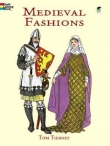
Текст книги "The Book of Q"
Автор книги: Jonathan Rabb
Жанр:
Триллеры
сообщить о нарушении
Текущая страница: 11 (всего у книги 28 страниц)
“I thank you for your time and your patience. Are there any questions?”
Twenty arms sprang up at once. Harris pointed to a familiar face in the second row. Margaret Brown, BBC News.
“Mr. Harris,” she began, “I appreciate your desire to keep things vague, but could you elaborate on what exactly you mean by religious vigilance? Which religion are we talking about?”
“Vigilance in inspiring faith, Margaret. I believe that to be a staple in every religion. The point here isn’t to find what separates us, but what connects us. When the proposal comes out, I believe it will become quite clear that the issues we are confronting transcend those kinds of boundaries.”
“Yes,” she continued, shouting above the next surge of hands and questions, “but wasn’t that the same claim you made when you were with the council? Not a Christian agenda, not a conservative agenda. And yet it turned out that wasn’t the case at all when it came to your lobbying efforts with Parliament. Is the Faith Alliance just another special-interest front?”
“I’m not sure what you mean by ‘front,’ Margaret, but I will say that my choice to look beyond the council had more to do with the focus of the message than with the message itself. Spiritual commitment isn’t something that should be marginalized. Jim,” he said, pointing to James Tompkins from the Times.
“Yes. Mr. Harris, you said the proposal will be in papers around the world. That can run into a tidy sum of money. Where, might we ask, is the funding coming from?”
“That kind of information will be made clear in the mission statement.” It was obvious to everyone in the room that the question period was going to be just that. Questions, no answers. Still the hands went up.
A reporter from the Independentjumped in. “You mentioned the Faith Alliance will be an ‘international organization.’ Could you give us a little more detail on that?”
“Let me put it this way. If, say, the Bank of England here, or the Federal Reserve in the States, has to take Japanese, Russian, European-what have you-economies into consideration when they set policy, I believe a crisis of values must also extend beyond borders. The linkages … that’s the word they like to use now”-a few titters-“aren’t just with our financial interests. The global community must be just that-global. And while we need to be sensitive to the cultural differences among us, we must also be willing to find that common ground so as to allow for some kind of connection when we tap into a part of the world that isn’t our own. My son, like most of our children, I would venture a guess, is an absolutely avid Internet guru. To be quite honest, I use him as mine more often than not.” More titters. “The point is, when he starts chatting with a little chap in, say, France, or Australia, or who knows where, I want to know that they’re speaking the same language. That they have that commonality. And that they find comfort in it. That, ultimately, is what we hope to achieve.”
One or two more pointed questions, followed by another series of less-than-coherent riffs from Harris, and the press conference came to a close. He was well aware of what the reporters thought of him and his meandering responses. So be it. He wasn’t trying to impress them. The soon-to-be-released list of names would be more than enough to keep them happy. His concern wasn’t the people who ran the media; it was those who watched it. And for them, bells and whistles were just fine. How many of them could get beyond the verbiage anyway? Bells and whistles. Best to leave it at that.
The harbor at Igoumenitsa comes up quickly from the open sea, a wide U of coastline dotted with houses, apartments, hotels, all nestled by the shore, shielded to the rear by the northernmost chain of the Pindus Mountains. The hills slope more gently at the rim of the town, easy rolls of grass and trees lilting their way to within half a mile of the water. Once a bustling port where an Alcibiades or a Nicias might have gathered his fleet to sail against Sparta, the town now contented itself as a tourist hub, the central jumping-off point for Corfu, a few beaches and resorts all that remained of any particular interest.
Even so, Pearse stood astounded by the beauty of the place. As did his newfound companions. All four looked on in silence as the ferry docked, the beach a powdered white that seemed more snow than sand. And what had dazzled on the open sea now found definable texture in the wood and stone of the piers and buildings, chiseled gray topped by the ceramic red of undulating tiled roofs, each one shimmering under the gaze of an early-morning sun. If he had ever conjured an idealized form of Greece, Pearse now knew Igoumenitsa to be that image. The expressions on the three faces to his left told him he wasn’t alone.
Over a quick breakfast, he’d learned they were making the trek to see a friend play in a summer-league soccer match in Beroea just west of Salonika. Amiable enough. More than that, they’d mentioned something about a bus. He’d asked to tag along.
Pearse made certain they were in the middle of the crowd as they took to the gangplank. Still not sure what he was looking for, he let his eyes wander-as casually as he could-along the faces of those waiting by the dock.
They were, as far as he could tell, all part of the tourist trade: hawkers of various activities, trinkets, transportation to the nearby resorts, all managing some semblance of Italian, articulated in thick Greek accents. Passport control was a formality; no one seemed to care that the priest had opted for mufti. Onshore, he stayed close to his friends, adopting the easy gait of a longtime confidant, arm on a shoulder as he laughed and nodded to the tales of their journeyman goalie friend. Evidently, the travails of what amounted to minor-league European soccer made triple-A ball sound like high living. Pearse tried to respond as if he knew what he was talking about. A few quizzical looks from the Italians, followed by bursts of jovial laughter-the much-hoped-for slap on the back-made the onetime trio into the perfect quartet.
As far as he could tell, no one showed any interest in them. Once or twice, he glanced around, ostensibly to check something in his backpack, tie his shoe. Nothing. At the bus station, he again made a quick sweep of faces-half the ferry, it seemed, hoping to squeeze onto the one bus out of town. Still nothing. Maybe Vatican security wasn’t as keen or as capable as he’d thought. He bought a ticket, climbed on board-Igoumenitsa (in rather atypical Greek fashion) showing the good sense to coordinate ferry arrivals and bus departures-and settled in. Within twenty minutes, his three friends were well on their way to catching up on the previous night’s sleep.
The more than eight hours necessary to travel the less than two hundred miles were due, in large part, to the pit stops along the way. First World and Third commingled with relative ease. At each station-a loose definition, to be sure-the driver took a few minutes to stretch his legs, chat with some of the locals, an occasion for everyone to escape the sauna inside. Sometimes, he even played up to the crowd, offering brief historical tidbits on the landscape-tales of the Centaurs, Jason and his Argonauts-although never allowing more than a few questions before shuttling everyone back on board.
At each town, Pearse marveled at the wide vistas of feral land, from a distance so lush. Closer in, the green patches tore up through the rough soil, wild vegetation seizing upon whatever turf it could. It was as if the earth here were too old to offer more than token assistance to anything staking a claim. Browned from the sun, the grass and trees tilted at an endless sky, faint hints of a distant past appearing from time to time on the roadside, all treated with casual indifference. A country of ruins could decide which it chose to celebrate.
The soccer trio managed to sleep through it all; their absence, however, didn’t free Pearse from the obligations of small talk. An Italian, clearly uncomfortable in the heat-white handkerchief ever present at neck and brow-took each of the layovers as a chance to bemoan his situation to whoever would listen. A missed ferry, a business opportunity lost. After the third stop, Pearse was the only one not trying to steer clear of him. The burden of a priest’s sensitivity. Only when the man began to ask Pearse about himself did the priest become more standoffish.
“Just on holiday,” he answered.
“Where to?” the man pressed.
“Wherever the spirit moves me.”
After that, he found reasons either to stay inside or to make his way to the men’s room during the stops, avoiding the minitours altogether. He felt strange reacting as he did, innocent questions treated with such suspicion, but he knew he had no choice. From now on, he would have to set aside his more charitable instincts. Even in something as simple as a friendly chat. He watched as the man finally began to engage his seatmate; there, too, the saturation point came quickly. If not for the handkerchief man getting off at the next stop, Pearse wondered how long the other man could have taken it.
Reminding himself why he was on the bus, Pearse returned to the notes, piecing together the bizarre customs Angeli had detailed, each one attesting to the eccentricities of the Manichaeans. Albeit vague, the descriptions were no less intriguing: dramatized versions of the “heavenly ascent”; ritual ceremonies of “illumination” to test the commitment of an initiate; secret rites of bathing and eating imbued with mystical properties. Amid all the bumps and jolts of the ride, only one came across with any distinction: an elaborate ritual of greeting that appeared at the beginning of each of the letters. Unlike the transcriptions of the prayer, these showed no variation. Five identical steps, which, although not physically possible to experience in a letter, were at least described with enough detail to provide a clear picture. By the time they stopped for lunch, Pearse found he could recite the “signs of reception” himself.
One more insight into the Brotherhood of the Light.
The choice to stop at Kalambaka, he discovered, had less to do with the town’s extensive choice of eateries than with its small railway station. Five miles off the Salonika road, it was the only chance to catch a train east or south-Larissa and Athens, and everything in between-before the bus headed north. More than that, it was an hour’s break from the stifling heat of the midday sun.
Actually, Kalambaka was quite charming, far larger than anything they had come across thus far, and with a central square that boasted several cafes and restaurants. All, no doubt, for the tourist trade.
Before choosing one, Pearse decided to see if there was a train to Salonika-via Larissa-that might be quicker than the bus. Finding his way to the station, he discovered that, yes, in terms of hours spent, the train would lop off over three from the trip. In terms of real time, however, the one to Larissa didn’t leave for another six. Of course, had he been going to Athens, he could have left within the hour. Not all that surprising.
So as not to make the jaunt to the station a complete loss, he stopped by the news kiosk and picked up one of the local papers. Probably a good idea to bone up on his Greek.
It was while he was getting his change that he noticed the handkerchief man’s seatmate standing by the information booth. Evidently, Pearse wasn’t the only one looking for something a bit quicker than the bus. And yet, if only for a second, Pearse thought he had caught the man staring at him.
He told himself it was nothing-after all, they had been on the bus together. It was natural for someone to glance at a familiar face. Hadn’t he just done the same thing? Still, there had been something there, something in the sudden turning away of the eyes. In a moment of pure paranoia, Pearse imagined the hushed conversation between the two men on the bus, the first assault having come up empty. Stifling the urge to bolt out of the station, he slipped the coins into his pocket and, as casually as he could, headed for the exit. Even so, it was all he could do not to glance over his shoulder as he pushed through the door.
Crossing the street, he managed a peripheral view of the station; the man was also making his way back to the stores and cafes, and always at a constant distance. The more Pearse thought about it, the more he realized that the precautions he had taken in Brindisi, and again in Igoumenitsa, had retained a kind of fanciful quality. Watching a few tourists. Finding a group to walk with. Easy responses to an unseen threat.
He couldn’t help but wonder if that threat had just made itself known.
And yet, it didn’t make any sense. If either of the men were with Vatican security, why would they have waited until now to approach him?
Unless, of course, they had never intended to make contact at all. It suddenly dawned on him that the Vatican needed only to track him. They had no idea where the “Perfect Light” was sending him; all they needed to do was put someone on the bus, then let the priest lead them to the parchment. The possibility that he might be switching to the train had simply forced their hand.
He felt his face flush as his mind continued to race. He stopped and gazed into the window of a shop; from the corner of his eye, he saw the man pausing to tie his shoe. It was all the confirmation he needed. With no alleyways or tunnels in the offing, he realized he had no chance of losing the man before getting back on the bus. He had to find another way.
With that in mind, he headed into the square. A large group from the bus was sitting at what was clearly the best cafe Kalambaka had to offer. Too many people, he thought. Instead, he walked past the fountain to a far less prepossessing establishment on the opposite end of the square. Even the waiter seemed surprised by his arrival. Undaunted, Pearse sat and began to glance through the menu. As he did, he noticed that the man had stationed himself directly across the square, his view unimpeded. Pearse signaled for the waiter, pointed to something on the page, then asked for a coffee. The waiter nodded and disappeared.
Two minutes later, he returned with the cup and placed it on the table. Pearse took a sip, then asked for the men’s room. The waiter pointed toward the inside of the restaurant, whereupon Pearse stood and headed back. Once inside, he kept himself far enough in so as not to be seen from the outside, but with a perfect view of the man across the square. Five minutes passed before the waiter drew up to his side with a plate of something brown. Pearse handed him several bills and told him to place it on the table outside. The waiter did as he was told, then returned to the kitchen.
And Pearse waited.
It was nearly ten minutes before the man began to make his way toward the cafe. The look on his face showed concern. Pearse pulled himself farther into the shadows. For several minutes, he watched as the man seemed unwilling to break the plane of tables and chairs, doing his best at casual surveillance. Finally, he had no choice but to step through. He was almost at the table, when Pearse suddenly emerged. Before the man could respond, Pearse drew up to him.
“Hello,” he said with sufficient surprise. “Weren’t you on the bus from Igoumenitsa?”
With no other choice, the man returned the smile. “Yes. Yes, I was.”
“The talkative Italian. He sat next to you.”
A second nod. “Yes. That’s right.”
“Well, you must join me for lunch.”
Only a moment’s hesitation. “That’s very kind of you.”
For fifteen minutes, they chatted about absolutely nothing, Pearse careful to keep track of the time. Without any prodding, he explained he was on his way to Athens. The train in twenty-five minutes. Amazingly, so, too, was the man. What a coincidence. Perhaps they could travel together? Pearse thought it a splendid idea. They finished their meals, headed back to the station, and, after buying two one-way tickets, made their way to the track.
Much to his relief, Pearse discovered that the Greek trains were all of the old European style: side doors to the platform from each compartment. He made sure that he and his companion picked one toward the back of the train. With five minutes to spare, they were seated next to each other, the conversation more and more insipid with each passing second.
Waiting another two minutes, Pearse suddenly winced.
“Is something the matter?” asked the man.
Pearse took several breaths, then said, “Stomach.” He smiled. “It acted up back at the restaurant. Not sure Greek cooking agrees with me.”
The man nodded, a look of concern in his eyes.
“But I think I can wait until we’re moving,” he added.
The man’s smile returned.
With a shrill whistle, the train began to move. Waiting as long as he dared, Pearse stood and, with his apologies, slid open the door to the corridor and headed for the back of the car, having made sure to pick one without a rest room. As he moved, he could sense the man staring after him; still he continued slowly. With a sufficient show of frustration at not having found a men’s room, Pearse pushed through the connecting doors and into the next car. He shot a glance back, the tint of the glass obscuring the view. Even so, he could tell that the man had gotten to his feet. Not waiting to see what he might do, and feeling the growing tremor of acceleration, Pearse broke into a sprint along the corridor. Darting into the last of the compartments, he bent over, opened the door-the tail end of the platform now sailing by at an ever-increasing speed-tossed the backpack out, and jumped.
The impact was instantaneous, his body rolling along the cement four or five times before he came to a stop. The pain in his shoulder and side was intense. His face, however, came through unscathed, locked within the protection of his arms. Lying flat, he glanced back at the train. The final car was just now slipping past the platform, the door he had used for his escape open and empty. Seconds passed before a figure appeared, too distant to make out with any accuracy. Its body language, however, was more than enough: frantic disbelief as the train banked away, its speed having become too great a deterrent for a second leap.
Pearse had lost his would-be tracker. Somehow, the pain in his shoulder seemed far less severe.
An official came running up, spewing Greek too fast for Pearse to keep up. Something about the company not being responsible for injuries. Pearse got himself to his feet, nodded, and, with a little shrug, answered, “No toilet paper.”
Five minutes later, he emerged from the station rest room, having taken care of whatever scrapes and tears he had inflicted on himself. Five minutes after that, he was safely back on board the bus.
The audacity of the last half hour hit him only as the bus began to pull out. Rather than a sense of elation, or even relief, he felt overwhelmingly light-headed.
He pulled down his window and let the wind slap at his face.
Beroea came and went, quick good-byes for his three friends. Half an hour later, the bus was driving through the outskirts of Salonika, city streets growing all around them.
Though bolstered by the misdirection in Kalambaka, Pearse remained cautious. It had been several hours since then, more than enough time for his lunch companion to get in touch with someone else. Sending them to Salonika was just too obvious a choice.
With that in mind, Pearse attached himself to the first clump of passengers off of the bus, he at its rear, head tucked low into the shoulders of those around him. Even so, he had no idea what he would do should someone appear. He’d used up his one flash of brilliance in Kalambaka. Clutching at the strap of his pack, he stepped through the platform gate and into the central hall.
Far grander than he’d expected, the station opened up under a vaulted dome of steel and glass, a series of tobacco shops, shoe-repair stalls, and newspaper kiosks all littered about, the tinny sound of overamplification echoing with each muffled announcement.
Head still bent, Pearse noticed a man-no more than twenty-five-making his way toward the recent arrivals. A man who seemed to be staring directly at him.
For the second time in the last few hours, Pearse felt the blood drain from his face. He edged his way deeper into the group.
Still the man came, heading straight for him. Pearse knew it was pointless to run. From the corner of his eye, he spotted a guard by one of the exits. He was on the verge of breaking toward him, when the young man did something Pearse never expected.
He waved, a hesitant smile on his face.
The movement stopped Pearse in his tracks.
“Professor Seldon?” The young man continued toward him. “Peter Seldon?”
It took Pearse a moment to remember.
“Yes…. Yes, that’s me,” he answered.
“Oh, good,” the man said, pulling up to his side. “I was a little worried. Dominic Andrakos. Professor Angeli-”
“Of course. Yes. Hello.” The two men exchanged a handshake.
“You were worried you wouldn’t find your way to my place?” Andrakos asked.
Pearse realized the relief on his face must have been all too obvious. “Something like that.”
“Understandable.” Andrakos smiled. “Salonika can be a bit tricky. The professor described you over the phone. She said you were coming by ferry. As there’s only one bus a day from the west, I took the chance. My car is just out front.”
“Lead the way,” Pearse added in Greek.
“Oh? You speak,” he responded in kind. “The professor didn’t mention that.”
“Enough to get by. I’m much better with the classical.”
“Then this will be good practice for you.”
Ten minutes later, they were fighting the traffic on Odos Egnatia, one of Salonika’s broader avenues, Andrakos spouting bits and pieces of historical insight as they drove. Mario Andretti as tour guide. Pearse kept a hand on the car’s dashboard, nodding each time the younger man took a breath. Had it not been for the speed and the still-unsettling few moments at the station, he might actually have enjoyed the ride. As it was, he was simply glad to be getting closer to the mountain.
The guard at the desk nodded to Kleist, no need for identification, not even a second glance at the package in his hands. Security had been punched up since the Pope’s death, most buildings within the Vatican under continuous surveillance. As a senior officer, Kleist was becoming a familiar figure around the City. In fact, he’d been to the Domus Sanctae Marthae four times in the last two days. Not that surprising, given that the six-story hospice would soon be home to the hundred or so members of the conclave. The cardinals had been forced to stay in makeshift quarters at the Papal Palace for centuries; now, they enjoyed far more spacious living during their deliberations. John Paul II had seen to that. Boniface had found no reason to change things back.
Having surveyed the building several times now, Kleist wished the late Pope had. The whole thing was too spread out, too disjointed, much more difficult to control.
His concern, however, had little to do with the cardinals’ safety. In fact, it was quite the opposite. Trying to bury upward of a hundred men under fifty tons of marble and stone would, he was discovering, require twice as many explosives as would the Papal Palace. Much greater chance of discovery. That the plastique would be in the building for less than an hour once the call came through made little difference. Impromptu spot checks by the bomb squad-dogs in tow-could be expected each night the conclave sat in session. And once they had chosen a new Pope, Kleist knew security would be taken to an even higher level. All of which meant that while the world celebrated the election, he would be racing around the hospice, twelve to fourteen minutes to plant the bombs between the dogs’ departure and the cardinals’ return.
Added to that, von Neurath had been adamant that certain fragments from the explosives remain sufficiently intact to allow for positive identification. They had gone to too much trouble acquiring the casings-ones that their Syrian dealer had assured them had come from the private cache of the Dar Hadjid, one of the more ruthless militant groups out of Iran-not to leave enough detritus for the source to be traced. The choice to target the third and fifth floors, therefore, had as much to do with room assignments as with engineering. Certain crucial cardinals on the fifth; best chance for surviving fragments on the third. As von Neurath had said, two birds with one stone: Allah’s stamp on the atrocity, more room for their own in the Sacred College. He had displayed a genuine delight in detailing the strategy.
And yet, the actual horror of what they were planning troubled Kleist far less than the cardinal’s explicit instructions that he discuss the preparations with no one but him. Usual protocol required Blaney, Ludovisi, and the contessa to be kept apprised of every detail. Von Neurath had explained that the lines of communication needed to be restricted at this point. Why was not his concern. Still, it seemed odd.
Reaching the fifth floor, he pulled a collection of brackets from the package, along with a section of blueprint, and moved down the corridor. The schematic was surprisingly clear. Inside several heating vents and ceiling ducts along the hall, he attached two sets of the metal supports, less than a minute for the epoxy to harden at each stop. It had been the same that afternoon on the third floor. One or two more trips, and everything would be in place.
Back on the ground floor, he nodded to the guard on his way out. “Everything looks fine.” Kleist smiled.
“Wouldn’t have expected anything else,” answered the man.
Good to hear, thought Kleist as he stepped out into the night.
The university’s junior faculty housing made Pearse’s Vatican rooms seem lush by comparison. Andrakos insisted on a glass of something before they headed out; given the last day and a half, Pearse readily accepted. They toasted over a tiny wooden table in what passed for the kitchen, both men downing the liqueur in a single swig.
“Hooo.” Pearse coughed several times, his eyes filling with tears. He’d had ouzo before. This was definitely not ouzo.
“ Yamass,” said the young Greek. “You won’t get this quality booze for a couple of days.”
“That might be a blessing in disguise.”
Andrakos smiled and tilted back his glass, refilling both before Pearse could say no. “They water down everything on the mountain.”
“I can understand why.” If he’d had any concerns about Andrakos’s driving before, he couldn’t wait to see him on the road after two of these.
Surprisingly, the alcohol changed very little. In fact, it seemed to heighten his skills. While Pearse replanted his hand firmly on the dashboard, Andrakos took the car in and out of alleys, crisscrossing and circumventing the afternoon traffic with extraordinary ease. Amid the whirlwind, he even managed to throw in a few more sights-a fleeting view of the Arch of Galerius, sixty feet of weathered stone and marble, its side piers lopped off, leaving only a gated torso, several bands of reliefs chiseled below, a glimpse into the city’s Roman past.
“A little reminder of home for you,” said Andrakos.
“Doesn’t look like Boston,” said Pearse.
“Ah,” said Andrakos. “I meant your current home.”
“You’d love Boston. Just remember to take the car.”
Pearse was permitted only a few seconds to take it all in before they were zipping past mosques and minarets, a quick glance at Ataturk’s birthplace, confirmation of Salonika’s role as meeting place between East and West. An equal-opportunity guide, Andrakos enjoyed recalling his city’s tug-of-war history, secure in the fact that whatever her conquerors had tried to impose, they had never escaped her singular imprint. Salonika was forever Greek, its relics-Roman, Turkish, Armenian-infused with the image of that Hellenic past.
It was only when he realized they were making their way deeper into town, rather than out to the mountain, that Pearse spoke up.
“Travel visas,” Andrakos explained. “No documents, no monks.”
Less than five minutes later, they pulled up in front of the Ministry of Macedonia and Thrace, which, as far as Pearse could see, was Agiou Dimitriou Street’s answer to Rome’s Palazzo Borghese, though on a far less opulent scale. The ash gray building stood back from the street, a pebble garden leading to the entrance steps, with arched columns beyond. Inside, the fantasy quickly faded, stark walls amid a bureaucrat’s maze of offices, along with two bizarre modern sculptures standing sentry at the door. A far cry from the Berninis he had hoped for.
Andrakos hurried them through the main hall, hellos and nods to just about everyone they passed. The same held true on the second floor, first names for most, smiles and waves following him down the corridor. Clearly, Angeli had chosen her contact well.
He headed for the office at the far end, not bothering to knock before venturing in.
“ Yasu, Stanto,” he said, moving straight for the desk.
The man in the chair looked up, a slightly older version of Dominic, a brother’s glare in his eye. “Don’t you even bother to knock, Nikki? I could have had someone-”
“I told you I was coming. We need the papers.”
It was then that the older Andrakos noticed Pearse at the door. “Oh, yes. Hello,” he said in English. “Please come in.”
Pearse stepped inside, at once taken by the view through the window-picturesque church, several bubble domes atop a ceramic roof, clear indication of Stanto’s favored position at the ministry. A view like that took years to acquire.
Dominic was already busy with various piles on the desk.
“They’re not in there.” Trying his best to curb his annoyance, Stanto smiled at his guest, then pulled the pages from his brother’s hands, continuing in a hushed Greek. “Look, Nikki, I can’t keep making last-minute arrangements for you. This is a serious office, not your private travel agency. The boys on the mountain can get very upset.”








